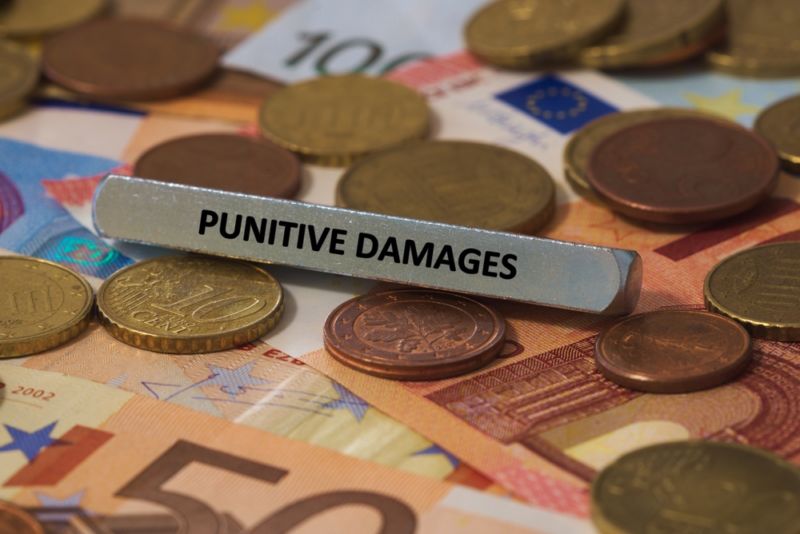Punitive damages are a type of compensation awarded by the judge overseeing a civil suit. These damages punish the defendant and dissuade others from taking similar actions or risking inaction in similar circumstances. Depending on the case, punitive damages can be exponentially larger than the actual losses suffered by the victim.
How Are Punitive Damages Different From Compensatory Damages?
Punitive damages are different from other types of damages because they are not meant to repay the victim for their losses. But even though punitive damages are not meant to provide compensation to cover losses, the plaintiff still receives the punitive damages if awarded in civil litigation.
The most common type of damages awarded in a civil case is compensatory damages. These are the damages that cover losses such as your medical bills, lost wages, ongoing care costs, property damage, and other accident- or injury-related costs. They may also cover liens placed against you by an insurance company, hospital, or other agency. Pain and suffering are also compensatory, even though they do not tie directly into economic losses.
Punitive damages, meanwhile, punish the liable party for the wrongs they committed and have nothing to do with the actual losses of the victim or victims. The judge has much latitude to determine when to award punitive damages, and in what amount.
For example, imagine you suffered injuries in a motorcycle accident because a tire blew out. The tire was defective, and we hold the manufacturer liable under New York State’s consumer protection and product liability laws. The judge awards you compensation to cover your medical bills, lost wages, repairing your bike, and pain and suffering. These are compensatory damages to cover your accident-related bills. Because the tire manufacturer was aware of the defect but took no action to recall the tires or otherwise prevent your accident, the judge also awards punitive damages. This is extra compensation beyond what the accident cost you.
When Does a Judge Award Punitive Damages?
Most judges do not award punitive damages regularly. When it comes to tort liability, judges are very aware that careless mistakes can lead to serious injuries and death, even if they are the same mistakes any of us could make at any time. In general, negligence is something people do not engage in on purpose. Most people do not intend to hurt anyone else, and only occasionally does a judge come across a case where the defendant acted badly enough to warrant punitive damages. For example, it is unlikely a judge would award punitive damages because someone was speeding and unable to stop in time on wet roads.
Instead, judges reserve punitive damages for cases when there is convincing evidence to support the defendant intentionally acting negligently, or engaging in wanton bad behavior that leads to the accident or injury. For example, if a drug company produces a medicine, but they hide potentially deadly side effects from users, they judge may award punitive damages to the surviving family members of victims.
Will I Receive Punitive Damages in My Case?
There are several things in play that work together to determine if you might receive punitive damages in your case. We can ask for them during any tort action, but that does not mean the judge is likely to award them. In most cases, we will ask for punitive damages if it is obvious the defendant acted in a particularly heinous way.
We cannot tell you whether a judge will award punitive damages in your case, but it is an important consideration if the at-fault party offers a settlement agreement. The only way we can recover punitive damages in your case is if a judge determines the payout in your case. If we negotiate a settlement with the insurance company, it will not include this type of damages.
In general, courts support awarding punitive damages that are in proportion to the severity of the injuries, or the compensatory damages due to the plaintiff.
Can I Talk to a Lawyer About My Case for Free?
If you have questions about an injury accident, potential tort claim, or another type of personal injury or class action case, the attorneys at Gacovino, Lake & Associates, P.C. can help you understand your legal options for compensation, including punitive damages if applicable. Call our Long Island office today at 631-600-0000 to schedule your free case evaluation.
